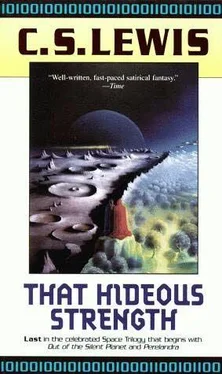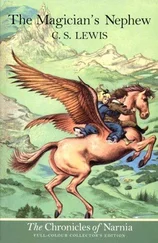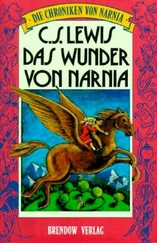Clive Lewis - That Hideous Strength
Здесь есть возможность читать онлайн «Clive Lewis - That Hideous Strength» — ознакомительный отрывок электронной книги совершенно бесплатно, а после прочтения отрывка купить полную версию. В некоторых случаях можно слушать аудио, скачать через торрент в формате fb2 и присутствует краткое содержание. Жанр: Религиоведение, Фэнтези, на английском языке. Описание произведения, (предисловие) а так же отзывы посетителей доступны на портале библиотеки ЛибКат.
- Название:That Hideous Strength
- Автор:
- Жанр:
- Год:неизвестен
- ISBN:нет данных
- Рейтинг книги:5 / 5. Голосов: 1
-
Избранное:Добавить в избранное
- Отзывы:
-
Ваша оценка:
- 100
- 1
- 2
- 3
- 4
- 5
That Hideous Strength: краткое содержание, описание и аннотация
Предлагаем к чтению аннотацию, описание, краткое содержание или предисловие (зависит от того, что написал сам автор книги «That Hideous Strength»). Если вы не нашли необходимую информацию о книге — напишите в комментариях, мы постараемся отыскать её.
That Hideous Strength — читать онлайн ознакомительный отрывок
Ниже представлен текст книги, разбитый по страницам. Система сохранения места последней прочитанной страницы, позволяет с удобством читать онлайн бесплатно книгу «That Hideous Strength», без необходимости каждый раз заново искать на чём Вы остановились. Поставьте закладку, и сможете в любой момент перейти на страницу, на которой закончили чтение.
Интервал:
Закладка:
This brought them to the end of dinner, and as they rose from the table Filostrato whispered in Mark’s ear “I would not advise the Library for you to-night. You understand? You are not in favour. Come and have a little conversation with me in my room.”
Mark rose and followed him, glad and surprised that in this new crisis with the D.D. Filostrato was apparently still his friend. They went up to the Italian’s sitting-room on the first floor. There Mark sat down before the fire, but his host continued to walk up and down the room.
“I am very sorry, my young friend,” said Filostrato, “to hear of this new trouble between you and the Deputy Director. It must be stopped, you understand? If he invite you to bring your wife here why do you not bring her?”
“Well, really,” said Mark, “I never knew he attached so much importance to it. I thought he was merely being polite.” His objection to having Jane at Belbury had been if not removed, at least temporarily deadened by the wine he had drunk at dinner and by the sharp pang he had felt at the threat of expulsion from the library circle.
“It is of no importance in itself,” said Filostrato.
“But I have reason to believe it came not from Wither but from the Head himself.”
“The Head? You mean Jules?” said Mark in some surprise. “I thought he was a mere figure head. And why should he care whether I bring my wife here or not?”
“You were mistaken,” said Filostrato. “Our Head is no figure head.” There was something odd about his manner, Mark thought. For some time neither man spoke.
“It is all true,” said Filostrato at last, “what I said at dinner.”
“But about Jules,” said Mark. “What business is it of his?”
“Jules?” said Filostrato, “why do you speak of him? I say it was all true. The world I look forward to is the world of perfect purity. The clean mind and the clean minerals. What are the things that most offend the dignity of man? Birth and breeding and death. How if we are about to discover that Mind can live without any of the three?”
Mark stared. Filostrato’s conversation appeared as disjointed and his manner so unusual that he began to wonder if he were quite sane or quite sober.
“As for your wife,” resumed Filostrato, “I attach no importance to it. What have I to do with men’s wives? The whole subject disgusts me. But if they make a point of it . . . Look, my friend, the real question is whether you mean to be truly at one with us or no.”
“I don’t quite follow,” said Mark.
“Do you want to be a mere hireling? But you have already come too far in for that. You are at the turningpoint of your career, Mr. Studdock. If you try to go back you will be as unfortunate as the fool Hingest. If you come really in-the world . . . bah, what do I say? . . . the universe is at your feet.”
“But of course I want to come in,” said Mark. A certain excitement was stealing over him.
“The Head thinks that you cannot be really one of us if you will not bring your wife here. He will have all of you, and all that is yours-or else nothing. You must bring the woman in too. She also must be one of us.”
This remark was like a shock of cold water in Mark’s face. And yet . . . and yet . . . in that room and at that moment, fixed with the little, bright eyes of the Professor, he could hardly make the thought of Jane quite real to himself.
“You shall hear it from the lips of the Head himself,” said Filostrato suddenly.
“Is Jules here?” said Mark.
Instead of answering Filostrato turned sharply from him and with a great scraping movement flung back the window curtains. Then he switched off the light. The fog had all gone, the wind had risen. Small clouds were scudding across the stars and the full moon-Mark had never seen her so bright-stared down upon them. As the clouds passed her she looked like a ball that was rolling through them. Her bloodless light filled the room.
“There is a world for you, no?” said Filostrato.
“There is cleanness, purity. Thousands of square miles of polished rock with not one blade of grass, not one fibre of lichen, not one grain of dust. Not even air. Have you thought what it would be like, my friend, if you could walk on that land? No crumbling, no erosion. The peaks of those mountains are real peaks: sharp as needles, they would go through your hand. Cliffs as high as Everest and as straight as the wall of a house. And cast by those cliffs, acres of shadow black as ebony, and in the shadow hundreds of degrees of frost. And then, one step beyond the shadow, light that would pierce your eyeballs like steel and rock that would burn your feet. The temperature is at boiling-point. You would die, yes? But even then you would not become filth. In a few moments you are a little heap of ash; clean, white powder. And mark, no wind to blow that powder about. Every grain in the little heap remain in its place, just where you died, till the end of the world . . . but that is nonsense. The universe will have no end.”
“Yes. A dead world,” said Mark, gazing at the moon.
“No!” said Filostrato. He had come close to Mark and spoke almost in a whisper, the bat-like whisper of a voice that is naturally high-pitched. “No. There is life there.”
“Do we know that?” asked Mark.
“Oh, si. Intelligent life. Under the surface. A great race, further advanced than we. An inspiration. A pure race. They have cleaned their world, broken free (almost) from the organic.”
“But how?”
“They do not need to be born and breed and die only their common people, their canaglia do that. The Masters live on. They retain their intelligence: they can keep it artificially alive after the organic body has been dispensed with-a miracle of applied biochemistry. They do not need organic food. You understand? They are almost free of Nature, attached to her only by the thinnest, finest cord.”
“Do you mean that all that,” Mark pointed to the mottled white globe of the moon, “is their own doing?”
“Why not? If you remove all the vegetation, presently you have no atmosphere, no water.”
“But what was the purpose?”
“Hygiene. Why should they have their world all crawling with organisms? And specially, they would banish one organism. Her surface is not all as you see. There are still surface-dwellers-savages. One great dirty patch on the far side of her where there is still water and air and forests-yes, and germs and death. They are slowly spreading their hygiene over their whole globe. Disinfecting her. The savages fight against them. There are frontiers, and fierce wars, in the caves and galleries down below. But the great race press on. If you could see the other side you would see year by year the clean rock-like this side of the moon-encroaching: the organic stain, all the green and blue and mist, growing smaller. Like cleaning tarnished silver.”
“But how do we know all this?”
“I will tell you all that another time. The Head has many sources of information. For the moment, I speak only to inspire you. I speak that you may know what can be done: what shall be done here. This Institute-Dio mio, it is for something better than housing and vaccinations and faster trains and curing the people of cancer. It is for the conquest of death: or for the conquest of organic life, if you prefer. They are the same thing. It is to bring out of that cocoon of organic life which sheltered the babyhood of mind the New Man, the man who will not die, the artificial man, free from Nature. Nature is the ladder we have climbed up by, now we kick her away.”
“And you think that some day we shall really find a means of keeping the brain alive indefinitely?”
“We have begun already. The Head himself . . .”
Читать дальшеИнтервал:
Закладка:
Похожие книги на «That Hideous Strength»
Представляем Вашему вниманию похожие книги на «That Hideous Strength» списком для выбора. Мы отобрали схожую по названию и смыслу литературу в надежде предоставить читателям больше вариантов отыскать новые, интересные, ещё непрочитанные произведения.
Обсуждение, отзывы о книге «That Hideous Strength» и просто собственные мнения читателей. Оставьте ваши комментарии, напишите, что Вы думаете о произведении, его смысле или главных героях. Укажите что конкретно понравилось, а что нет, и почему Вы так считаете.












